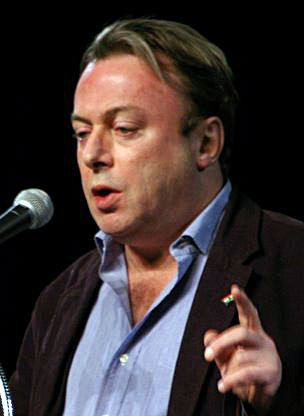

(This was before Twitter and Facebook could unleash the hounds of hell.) Watching him on television one night, I realized it was all beginning to show. Christopher took a beating in the cable-news court of public opinion. In the late ’90s, he got into a heated dustup with Sidney Blumenthal over something that was or was not said. What he couldn’t put into print, he could say on television. But for the remainder of his time at Vanity Fair, he didn’t write about the war.Īs one of the few liberal public intellectuals to take this stance, Christopher found himself to be catnip to television-news bookers. Christopher wrote about dozens of subjects both important and just plain funny and entertaining. It didn’t cause us friction so much as it created something of a sound barrier. I was in a further bind, inasmuch as my most celebrated columnist was publicly for the war. I was one of the few editors publicly against the war. His contrarian streak famously reached its peak after 9/11, during the buildup to the invasion of Iraq. In any event, that column was never published on my watch. I either stopped listening to his rationale or moved on to another subject otherwise I could retail his pro-gun argument here. Christopher’s reasoning was no doubt novel and well thought-out. But he wanted to let me know up front that he was opposed to controls.

After one of the more gruesome school shootings in the ’90s, I asked him if he’d be up for writing a column on gun control. His judgments were in no way predictable. (“Numbers One through Three can simply go, since they have nothing to do with morality and are no more than a long, rasping throat clearing by an admittedly touchy dictator.”) In 2000, Christopher also began writing for The Atlantic about books and literature, producing scores of pieces (on Winston Churchill, Gertrude Bell, Ian Fleming, Karl Marx, and, yes, Wodehouse) that somehow displayed both lightness and depth. He once took a “revisionist chisel” to the Ten Commandments. I brought Christopher to Vanity Fair when I became the magazine’s editor in 1992-he was one of the first people I hired-and his remit was broad: from Mother Teresa to Joan Didion, from the Quran to the Kennedys, from the importance of being Orwell to the experience of being waterboarded. Read: Arguably the best of Christopher Hitchens Like all sane people, he considered Wodehouse the greatest practitioner of the English language. Late into the night and well into his cups, he could recite Gussie Fink-Nottle’s prize-giving speech at Market Snodsbury Grammar School-and precisely the way P. There was nothing Christopher hadn’t read and couldn’t recall from memory. I f you ever had the good fortune to spend time with Christopher, as I did over long lunches and even longer dinners, you would have been an audience to one of the more spectacular minds in recent history. Christopher had a wicked combination of learned understanding and searing wit that got to the core of the thorniest political and social issues. Perhaps the most significant avatar my own age was Christopher Hitchens, who died 10 years ago this month. They were of an older generation, though. Both men saw the American experiment for what it is: flawed and, just that, an experiment. And Michael had the ability to calm me down. David had the ability to work me up over whatever state of affairs was on the boil. Until their deaths (Halberstam’s in 2007, Herr’s in 2016), I spoke with each of them for hours most weeks. Their experiences with wrongheaded administrations-and in the case of David, with his own newspaper-gave them a healthy disdain for authority in all of its guises. David’s book The Best and the Brightest is the definitive account of the politicians and mandarins who drove us into Vietnam and kept us there long past our welcome. Then he became a Buddhist and moved to upstate New York.

Michael wrote Dispatches, arguably the finest book about the war part of the Vietnam War. Two of these friends were old Vietnam hands-Michael Herr and David Halberstam. In my own case, over the years I’ve lost a number of friends whose wisdom and reason would be invaluable in trying to make sense of the sheer brokenness of the America we are living in.
HITCHENS BLIND LIBERAS HOW TO
An even better alternative is to spend time with wiser heads who are willing to dispense advice on how to navigate the road ahead. S o how does one come to grips with the whirlpools of insanity that swirl around us these days? Copious amounts of alcohol are certainly a reliable option.


 0 kommentar(er)
0 kommentar(er)
